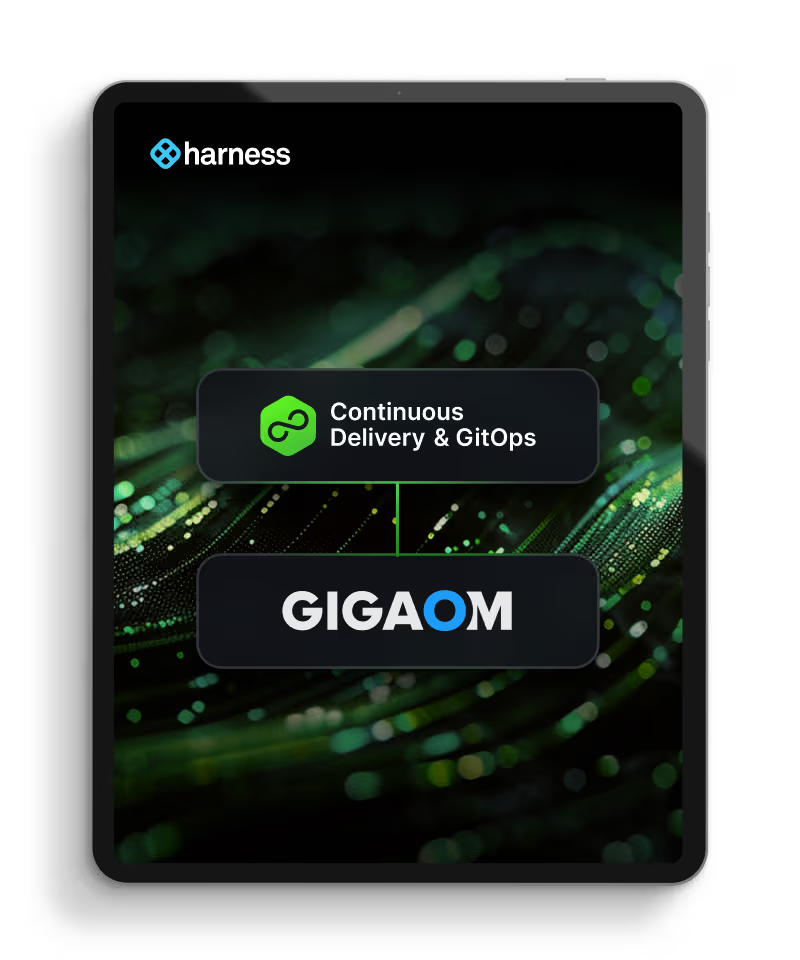Key takeaway
Consider features, migration and AI capabilities when choosing your next CI/CD platform.
Over the last 20 years, Jenkins has been the beating heart of many CI/CD pipelines. It earned its place through flexibility and a vibrant plugin ecosystem. But today, teams managing large software delivery efforts are asking the same question: Is Jenkins still the right tool for us?
The reality is that Jenkins is showing its age. Maintenance burdens, plugin fragility, and scaling headaches are pushing teams to explore modern alternatives.
Let’s walk through the leading Jenkins replacements, what makes each stand out, and how to start charting a path forward.
Why Teams Are Moving Off Jenkins
Simply put, Jenkins was built for a different era. It’s versatile, but that comes at a cost:
- Plugins need babysitting. Many are community-maintained, and breaking updates are all too common.
- Jenkins servers demand care and feeding. Updates, backups, HA strategies—you’re often playing sysadmin.
- Scaling is DIY. Need to run more builds in parallel? That’s on you to configure and manage.
- CD feels bolted on. Jenkins can be used for deployment, but it's rarely the easiest or safest way to do so, especially in Kubernetes.
- Pipelines sprawl. The reuse model is mostly copy/paste, so if you need to change the “normal way things are done,” that means a campaign of updates. It’s a slog at best.
Modern tools reduce these frictions by being cloud-native, opinionated in useful ways, and integrated across the software lifecycle.
Key Considerations
So what should you consider when looking for an alternative? A like-for-like swap isn’t always the right strategic move.
- Point tool vs. DevOps platform: Jenkins is a CI tool that’s been used as a broad automator. Since its creation, the industry has moved towards integrated DevOps platforms. How far in that direction, if at all, do you want to go?
- Integration strategy: Does the tool leverage a community to produce integrations, or does the vendor do it themselves? A community will produce more, but come with more security and quality headaches.
- Feature richness: Let’s face it, Jenkins is behind in modern CI/CD tools. You’ll need to look at several to understand how they compare.
- Migration capabilities: Most tools offer some assistance in transitioning from Jenkins. How much varies greatly. Take a hard look to understand how much work it’s going to be to move.
- AI strategy: How AI is being used by the vendors varies significantly, and will impact your ability to keep up with the deluge of code coming from AI coding tools.
So what are the best replacements?
Top Jenkins Alternatives
We’ll cover six tools that consistently appear in DevOps circles, each with strengths that address common Jenkins pain points.
Bitbucket Pipelines
If you’re an Atlassian shop using Bitbucket Cloud, Pipelines gives you built-in CI/CD with minimal configuration. Coupled with the rest of the Atlassian suite, Bitbucket can be utilized as part of a DevOps platform. At the time of writing, Atlassian is making significant progress with its AI assistant, “Rovo,” but Rovo is not yet available in Bitbucket Pipelines.
Where it shines:
- Native to Bitbucket repos
- Docker-based build environments
- Simple YAML config with predefined deployment steps ("pipes")
Things to consider:
- Limited scalability for large orgs (especially free tier)
- Less mature CD features
Buildkite
Buildkite is popular with tech companies that value performance and configurability over governance concerns. It has strong scalability and parallelization capabilities. Pipelines are also flexible and dynamic. Regarding the platform question, it evolved into a CI tool, but has also added a package registry, test management, and various deployment features.
Where it shines:
- Massive scalability via self-hosted agents
- YAML pipelines plus runtime flexibility
- Used by engineering-heavy teams (Shopify, PagerDuty)
Things to consider:
- Requires you to manage agent infrastructure
- The plugin ecosystem is smaller than Jenkins or GitHub
CircleCI
CircleCI has long focused on fast, scalable CI with a clean developer experience. It supports Docker, Kubernetes, and integrates well with GitHub and Bitbucket. CircleCI is focused on CI - it’s not a platform play. Circle’s AI strategy appears to be focused on remediation - when the build breaks, CircleCI attempts to fix it.
Where it shines:
- Good test parallelization and caching support
- Cloud and self-hosted options
- Modular pipelines via "orbs" (reusable config bundles)
Things to consider:
- CD is possible, but not opinionated; you’re writing scripts
- The orb ecosystem, while growing, is smaller than others
GitHub Actions
GitHub Actions may be the spiritual successor to Jenkins. A huge ecosystem of community-supplied plugins, now called “actions”, will seem familiar, and while they are more restricted and are unlikely to crash into each other, you do still need to worry about quality and security issues from that supply chain. GHA has a broad community, so finding someone with skills is relatively easy, but you may need to script more than with some more full-featured tools.
Where it shines:
- Built with GitHub, no separate tooling manage
- Huge library of third-party actions
- YAML-based pipelines with strong community examples
Things to consider:
- Security practices vary across community actions (sound familiar?)
- Native CD support is basic, often paired with Argo CD or scripts for real deployment strategies
GitLab CI/CD
For teams using GitLab, its CI capabilities are considered solid, and the platform attempts to provide “one of everything” along the DevSecOps lifecycle. Pipelines are managed via YAML in your repo, and built-in runners make setup smooth. GitLab attempts to weave AI capabilities throughout the DevOps lifecycle.
Where it shines:
- Fully integrated DevOps platform (issues to deploy in one tool)
- Built-in security scanning
Things to consider:
- Best used inside the GitLab ecosystem
- Some YAML features can feel limiting compared to code-based pipeline DSLs
- Started with source control and remains strongest with capabilities closer to developers than production
Harness
Harness is a full-stack AI platform for DevOps, with CI, CD, feature flags, and more. It’s aimed at reducing developer toil and increasing delivery speed. Unlike the rest, it incorporates governance and rollback as first-class concepts; its roots in continuous delivery are evident. Harness includes AI throughout its platform, from determining whether a deployment needs to roll back to fixing builds and optimizing cloud costs.
Where it shines:
- Built-in CD with automated verification and rollback
- Policy-as-code and governance for compliance-sensitive orgs
- Jenkins pipeline migration tools (because let’s be honest: rewriting thousands of Jenkins files isn’t fun)
Things to consider:
- Commercial platform (though free tiers exist)
- Full platform may be more than you need if replacing just Jenkins CI
Quick Comparison Table
| Tool | Best For | Strengths | Tradeoffs |
|---|---|---|---|
| Harness | Enterprises needing robust CI/CD & governance | Automated rollback, governance, Slick Jenkins migration | Commercial, broader than just CI |
| GitHub Actions | GitHub-based teams | Built-in, marketplace, cloud-native | Limited CD, action security varies |
| GitLab CI/CD | GitLab users wanting an all-in-one DevOps | Full lifecycle, security, GitOps | YAML limits, GitLab-centric |
| CircleCI | Teams needing fast, scalable CI | Parallelization, orbs, cloud/self-hosted | CD scripting required |
| Buildkite | Engineering-led organizations | Hybrid model, self-managed agents, less governance | Must manage agents |
| Bitbucket Pipelines | Small-to-mid Atlassian shops | Simple setup, Atlassian integration | Scalability, CD maturity |
Final Thoughts: Choosing What Comes Next
There’s no universal “best” Jenkins replacement, only the one that best aligns with your team’s needs. Consider what you need, and what it will take to get there. But please, as someone who has written Jenkins plugins and dressed up as a butler, pick something. It’s time. It’s past time. You know it. That’s why you’re here.
One closing note: migrating off Jenkins is rarely a 1:1 translation. Use this moment to clean up brittle pipelines, eliminate unnecessary complexity, and modernize delivery practices. Jenkins got us far, but the road ahead can be faster, safer, and more joyful.
Considering a move to Harness? Our migration tools and services can make it so much easier. Learn more at harness.io/butler.

Harness is a GitOps Leader
Discover why Harness was named a Leader in the "GigaOm Radar for GitOps Solutions." Harness helps teams manage GitOps at scale and orchestrate rollouts across clusters and regions.


